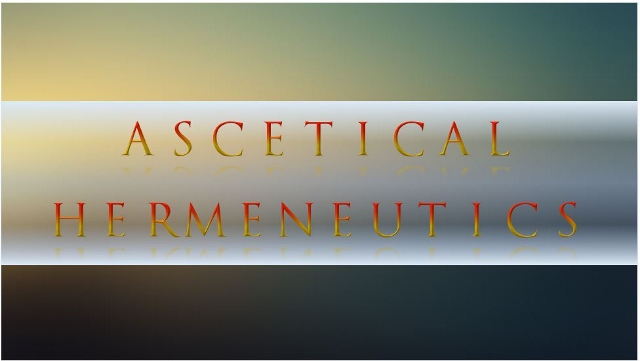Monasticism began as a result of one man’s attempt to fulfill a Scriptural challenge, “If you would be perfect, go, sell what you possess and give to the poor, and you will have treasure in heaven.” (Matt 19:21) And so the young Antony attempted to live out what God had mandated. Many followed the example …
Monasticism began as a result of one man’s attempt to fulfill a Scriptural challenge, “If you would be perfect, go, sell what you possess and give to the poor, and you will have treasure in heaven.” (Matt 19:21) And so the young Antony attempted to live out what God had mandated. Many followed the example set by the Great Antony and in all cases they too were concerned with the fulfillment of Scriptural commandments and the realization of the virtues they bestowed. During his daily routine (the same being true for nuns) a monk’s main occupation was meditation upon the Scriptures, with the ultimate goal of truly knowing them; i.e. doing them. The result was the forging of individuals whose words and deeds echoed with biblical passages. By memorizing large sections by heart, a monk’s normal speech would carry many obvious, and numerous subtle, quotes from the Scriptures. This is a characteristic which is best observed in the discourses of St. Shenouda. Spending his adolescence in the Monastery, and his early adulthood reading the Scriptures, we often find him quoting freely from both the Old and New Testaments. At times he makes direct quotes, other times paraphrasing whole sections, and often making small allusions which bring certain biblical passages to the mind of his audience.
Such was the degree to which the words of the Scriptures penetrated the fibers of a monk; so that his everyday language, whether he knew it or not, echoed with them. The fact that the Scriptures played a crucial role in the daily routine of the desert is a fact that does not need elaboration. However, it is important to keep in mind that the Scriptures do not, and have never existed in isolation. They are always understood within a certain tradition, a world view, which facilitates their understanding.
Egyptian Monasticism revolved around an ascetical understanding of the Scriptures. These “ ascetical hermeneutics ” are apparent in many sources, including the Lives of many fathers. However, nowhere is the concept more apparent than in the “Shenoudian Corpus.” Simply stating it, an ascetical understanding of the Scriptures stems from a firm belief in their fundamental unity. It is the precise and masterful interlacing of the New and Old Testaments in a manner in which the same God is clearly seen in both. From the beginning of Christianity the New Testament with its theme of love and forgiveness seemed to be at odds with the Old Testament rebellion and gore. In a way, this led to the growth of the allegorical method of biblical interpretation. However, in some circles this also led to the denouncement of the Old Testament as not at all pertaining to the New. However, in the desert as seen through the thought of St. Shenouda, both were essentially the same book, by the same God. This may not seem strange to the modern individual, for all Christians state the same belief. However, a closer examination will uncover the originality and asceticism of the Abbot.
In Shenoudian thought we do not find any sort of separation resulting from the manner in which God is portrayed in the Old Testament versus the New. He sees the same God who destroyed Sodom and Gomorrah as being the One who was moved to tears before the tomb of Lazarus. He also sees the God who cleared out the temple with a whip and who will send some to everlasting torment as the very One who had compassion on Lot and saved him from destruction. To the good Abbot the notion of a “SantaChrist” simply did not exist; Christ was to be loved as Saviour and feared as, Judge, simultaneously. And thus, we see St. Shenouda exhorting his congregation to pierce their hearts “in the fear of the Lord,” and to be weary of His “wrath.” He maintains the idea of God as a fearful God, but he also assures the congregation of His justice and mercy
“If God has not spared at all those who had sinned against him from the beginning to bring his wrath upon them, he shall not refrain from pouring his anger upon anyone among us who will sin against him at the present time and at the last time. And if God has not forgotten at all those who have been righteous from beginning to deliver them from all kinds of wrath that he has brought down upon all the sinners, he shall never forget, either, anyone who will be righteous among us at the present time and at the last time…”
His notion of God is firmly fixed upon a concrete unity between the Old and New Testaments. This is the fundamental theme of the Abbot’s thinking. His views concerning discipline, ethics, marriage, virginity etc., being derived directly from this paradigm.
(From: Bulletin of St Shenouda the Archimandrite Coptic Society Vol: 2)
Join Us: Sign Up Today!
Tags:












